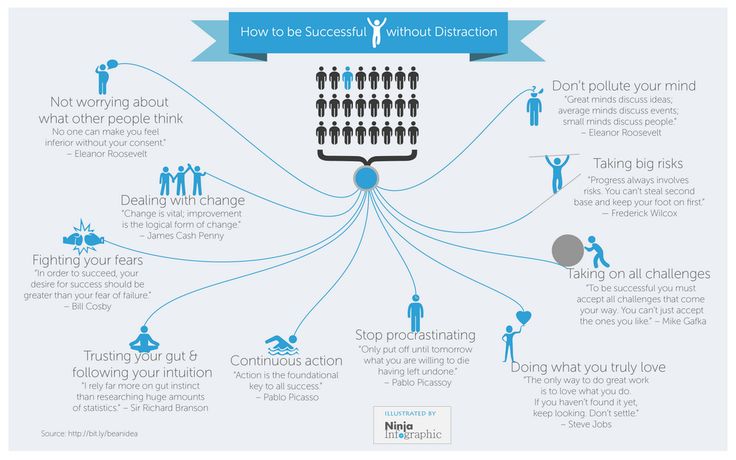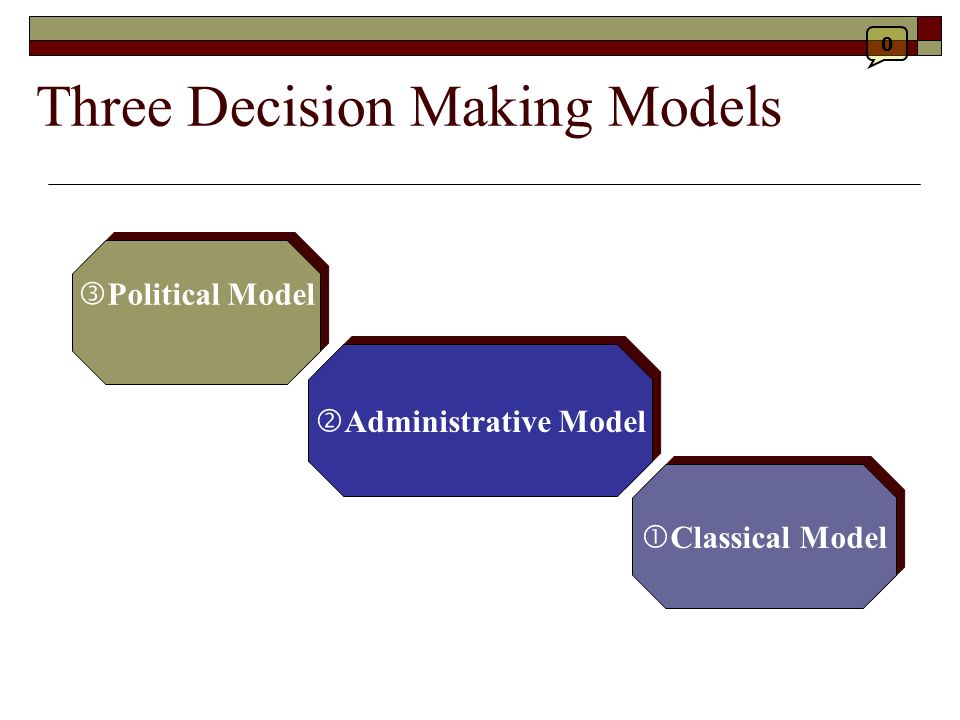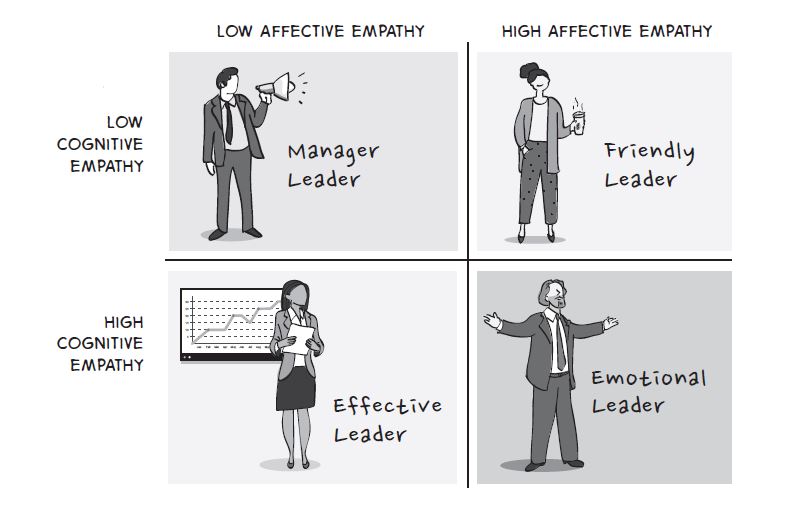Sex and food addiction
The Relationship Between Sexual Addiction and Eating Disorders
Our society today is saturated with images of promiscuity, sexual misconduct, and inappropriate sexual behavior that are becoming more readily accepted within our culture. With the widespread access of the internet and plethora of sexual material, it is no wonder that an estimated 12 million people suffer from sexual addiction in the United States [1].
Sexual addiction is typically characterized by compulsive and obsessive behaviors that are often rooted in trauma, emotional pain, poor coping mechanisms, or lack of intimacy. As defined by the National Council on Sex Addiction and Compulsivity, sexual addition is:
“engaging in persistent and escalating patterns of sexual behavior…despite increasing negative consequences to self and others [2]”
Many individuals who struggle with an addiction to sex cannot stop or control their behaviors, even if their choices are ensuing harmful effects to them and their loved ones.
The Guilt and Shame of Sexual Addiction
To further complicate matters, those that struggle with sexual compulsion often feel ashamed and guilty. This can drive the sufferer further into isolation and compound the problem. Many people struggle in silence for years rather than seeking life-enhancing treatment from trained professionals.
An addiction to sex has many similar connections to other compulsive disorders, such as a drug addiction or eating disorder. Previous research studies have documented the co-morbidity of sex addition with other addictions, such as:
- Chemical dependency
- Eating disorders
- Compulsive spending [3]
It is not uncommon for a person who is struggling with sex addiction to also have an eating disorder, such as anorexia nervosa, bulimia nervosa, or binge eating disorder.
Commonalities Between Sex Addiction and Eating Disorders
What are some of the commonalities that exist between sex addiction and eating disorders? Here are some of the similar characteristics of these disorders that can cause the two to parallel one another:
Obsessive-compulsive behaviors
With sexual addiction and eating disorders, there is often a repetitive impulse to engage in obsessive-compulsive behaviors. In the case of sexual addiction, this may be manifested as compulsive masturbation, obsessive dating, or excessive use of pornography.
In the case of sexual addiction, this may be manifested as compulsive masturbation, obsessive dating, or excessive use of pornography.
A mirroring situation in a person with an eating disorder would be:
- Repetitive counting of calories
- Compulsive bingeing and purging episodes
- Excessive exercising
All of these types of behaviors are dysfunctional responses to triggers, whether external or internal.
Cyclic Actions
A person who struggles with either an eating disorder or sexual addition likely finds themselves stuck in a vicious cycle of behaviors and emotions. For example, a person addicted to sex may experience impulses that lead them to act out on their desires.
These behaviors are likely negative and detrimental, which leads to feelings of shame, guilt, denial, confusion, or despair. These overwhelming feelings can trigger an impulse to engage in maladaptive behaviors once again, which perpetuates the cycle.
This is also seen in eating disorders, such as binge eating disorder. A person struggling with this eating disorder may feel compelled to gorge on vast amounts of food as a means of coping with or numbing painful emotions. The feelings that follow the binge episode may include guilt and shame, which can further trigger the cycle of binge eating.
A person struggling with this eating disorder may feel compelled to gorge on vast amounts of food as a means of coping with or numbing painful emotions. The feelings that follow the binge episode may include guilt and shame, which can further trigger the cycle of binge eating.
Detachment
Because of the nature of both eating disorders and sexual addiction, sufferers will repeatedly engage in destructive behaviors, despite the harmful consequences that may result. Though their life may be damaged emotionally, financially, psychologically, and/or physically, a person cannot simply choose to stop their injurious patterns.
This is a result of a number of complex factors, such as genetics, biological causes (hormones and neurotransmitters in the brain for example), learned emotional responses, and more.
Help Is Available for Sexual Addiction
If you or a loved one is suffering from a sexual addiction and an eating disorder, be encouraged in knowing that you can receive help for these conditions. Increased awareness and understanding about these disorders has helped improve treatment methods, which can give a person the tools they need to overcome.
Increased awareness and understanding about these disorders has helped improve treatment methods, which can give a person the tools they need to overcome.
Perhaps you have experienced fear or shame about your struggle and this has caused you to be reserved about reaching out for help. Taking that first step and asking for help can be life-changing as you seek the resources available to overcome the struggle with a sexual addiction and/or eating disorder.
About the Author:
Crystal Karges, MS, RDN, IBCLC, is a Masters-level Registered Dietitian Nutritionist (RDN) with a specialty focus in eating disorders, maternal/child health and wellness, and intuitive eating. Combining clinical experience with a love of social media and writing, Crystal serves as the Director of Content and Social Media for Eating Disorder Hope/Addiction Hope, where her passion to help others find recovery and healing is integrated into each part of her work.
As a Certified Intuitive Eating Counselor, Crystal has dedicated her career to helping others establish a healthy relationship with food and body through her work with EDH/AH and nutrition private practice.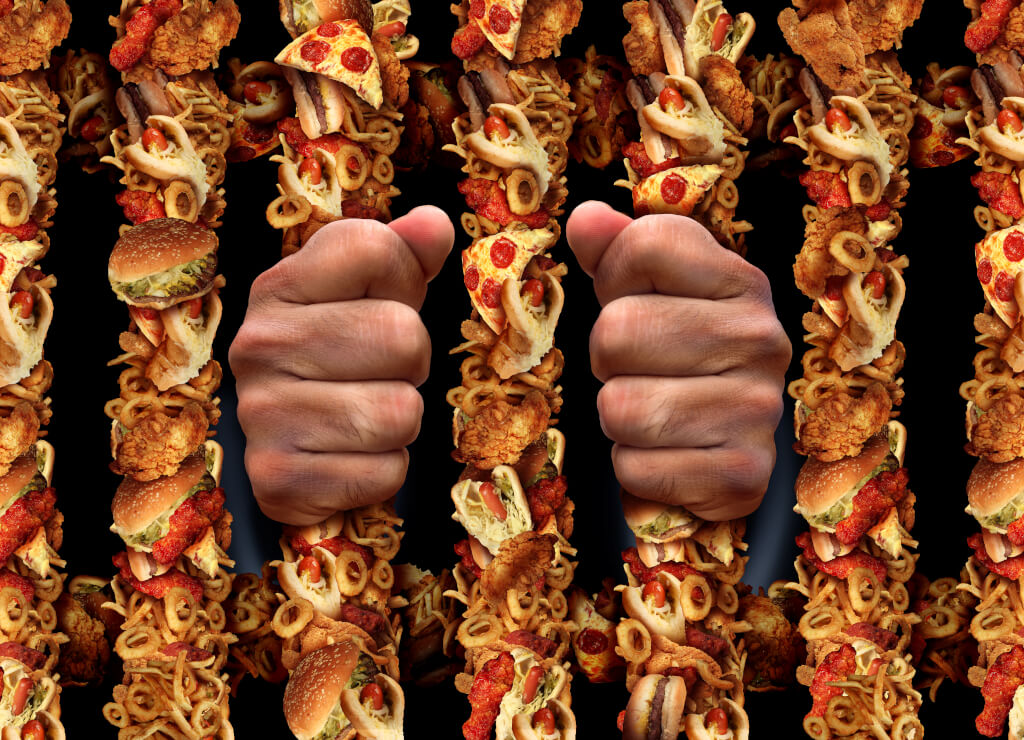
References:
- American Association for Marriage and Family Therapy, “AAMFT Therapy Topic – Sexual Addiction”, http://www.aamft.org/imis15/aamft/Content/Consumer_Updates/Sexual_Addiction.aspx
- “Sexual Compulsivity”, http://www.promises.com/treatment-programs/sexual-compulsivity/
- Bargains With Chaos: Sex Addicts and Addiction Interaction Disorder, http://www.iitap.com/images/BargainsWithChaos-small_file.pdf
The opinions and views of our guest contributors are shared to provide a broad perspective of addictions. These are not necessarily the views of Addiction Hope, but an effort to offer a discussion of various issues by different concerned individuals.
We at Addiction Hope understand that addictions result from a combination of environmental and genetic factors. If you or a loved one are suffering from an addiction, please know that there is hope for you, and seek immediate professional help.
Published on October 16, 2014
Last Updated & Reviewed By: Jacquelyn Ekern, MS, LPC on June 4, 2018
Published on AddictionHope.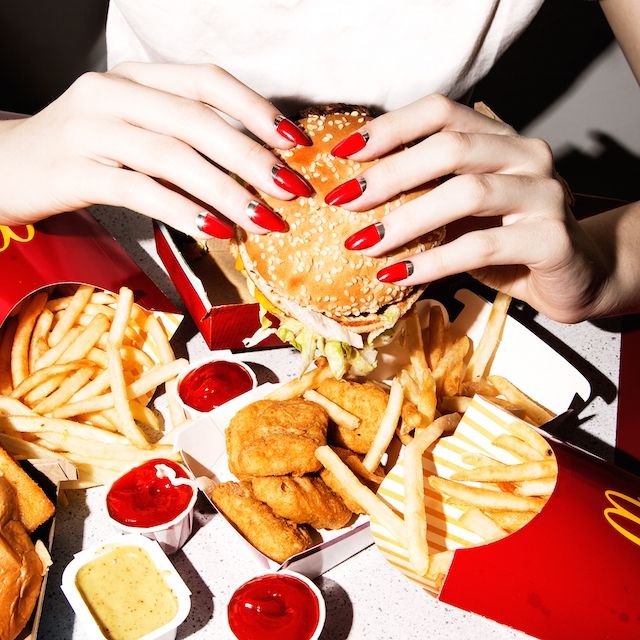 com
com
When Food Is Food, When Sex Is Sex
Food and sex are a means unto their own; their motivations are pure, primary. Food tastes great, and sex is pleasurable. Both food and sex, as a general rule, are engaged in with others, although eating alone and masturbation also qualify as fun and gratifying.
Sometimes both food and sex are used as vehicles and substitutions for fulfillment of other needs, i.e., the wish for intimacy and closeness, quick emotional fixes, and sometimes to stave off loneliness or, at the extreme, to enact self-harm and manifest low self-worth. Eating disorders and sexual addiction are examples of attempts to address psychological and relational needs through extraordinarily self-defeating and self-destructive behaviors. Therapy, particularly psychodynamic therapy, is designed to ferret out the vicissitudes and complexities of motivation behind why a person who may deeply crave love and healthy pleasure turns addictively toward behaviors that initially may gratify, but ultimately harm.
The necessity to delve deeper into psychological and/or relationship issues becomes apparent when either food or sex are "used" predominantly, exclusively, or excessively for general or overall fulfillment in life — when food and/or sex are the only pleasures sought.
The connection between the use of an eating disorder as a replacement for relationships and the use of food and body image preoccupation as metaphors for other appetites in life (i.e., success, achievement, pleasure, as well as sex) are not new ideas in the field of mental health. Their metaphoric associations are largely supported by experts.
At first blush, having numerous sexual encounters is widely accepted in Western society. However, having serial or compulsive sex as a means of connection can also be a substitute or rationalization against needing or wanting a relationship. The argument in favor of casual sex is that there are no relational strings attached. But, if making quick sexual connections were the answer, why do feelings of loneliness and emptiness pervade for so many who do so?
Simple needs, such as the pursuit of love and comfort, become so easily complicated. The fear of abandonment, rejection, loss of love, or fear of eliciting a partner’s anger are such powerful emotional states that avoidance or denial of the need for relationships makes sense: Who really wants to suffer relational pain or loss? However, we cannot escape humanity; therefore, substitutions are sought to address the need for human connection, a lifelong and ever-present need. If being close and intimate were so easy, most people would feel and find fulfillment in their relationships, and the need for defenses and behavioral substitutions would not be necessary. Divorce rates continue to rise.
The fear of abandonment, rejection, loss of love, or fear of eliciting a partner’s anger are such powerful emotional states that avoidance or denial of the need for relationships makes sense: Who really wants to suffer relational pain or loss? However, we cannot escape humanity; therefore, substitutions are sought to address the need for human connection, a lifelong and ever-present need. If being close and intimate were so easy, most people would feel and find fulfillment in their relationships, and the need for defenses and behavioral substitutions would not be necessary. Divorce rates continue to rise.
No matter how technologically advanced we become (virtual porn or attempts to circumvent emotions through attaining more creature comforts), we cannot eradicate the need to love and be loved. Attachment to others and connection are normal and become compromised when psychological fear censors or constrains our behavior.
The writings of John Bowlby and Mary Ainsworth, the parents of Attachment Theory, continue to fuel and underscore sound psychological practice.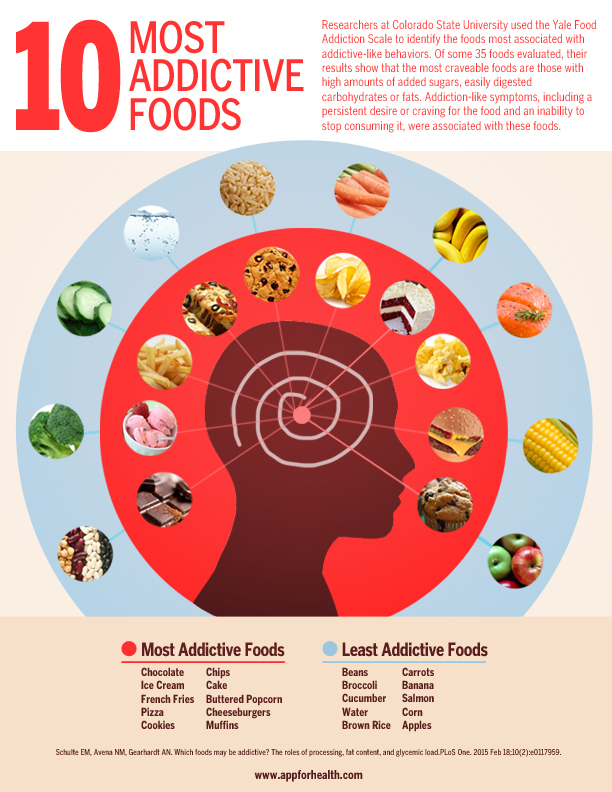 This theory identifies patterns of attachment, such as anxious, avoidant, and ambivalent, which have helped patients to identify and understand their own maladaptive relational patterns, which are preventing them from finding and sustaining longevity in love.
This theory identifies patterns of attachment, such as anxious, avoidant, and ambivalent, which have helped patients to identify and understand their own maladaptive relational patterns, which are preventing them from finding and sustaining longevity in love.
A quick summary of Attachment Theory's relationship to food and sex
Attachment Theory says that emotional support, understanding, empathy, and acceptance during a child’s development are the foundation of self-esteem and self-worth throughout life. Without healthy attachments, our self-esteem is diminished, and our capacity for empathy toward self and others is impaired. When this happens, a relationship with food and/or sex can become a replacement, a metaphor, for the healthy relationships a child craves. Food and body image obsession or the repeated need for sexual activity and validation provide a false sense of self-esteem and are ways to measure one’s worth that may seem simpler than the complex world of emotional and intimate human interaction. Being "attached" to an eating disorder, or to sex, feels less complicated than relational attachments.
Being "attached" to an eating disorder, or to sex, feels less complicated than relational attachments.
Despite these emotional struggles, individuals’ inherent craving for these attachments remains and even grows. They may begin to seek fulfillment, closeness, and comfort through food, body image, and weight obsession and/or repeated sexual encounters or sexual addiction. In this way, both eating disorders and sex become metaphors — symbols of their quest for comfort through food or compulsive sex, a totem of their guilt for wanting, needing, feeling, and disagreeing, as evidenced by the self-destructive nature of all eating disorders and sex compulsion and addiction. Some individuals create this relationship/attachment to food or sex, because the feeling of connection that they crave in their relationships — the attachments they truly seek — feel too complicated. Eventually, eating disorders and the short-lived connection made through every repeated sexual encounter may become their relationship of choice, because real relationships are problematic at best, deeply damaged at worse.
Sometimes food and body-image preoccupation are used as substitutions and avoidance of the pleasure that comes with sex. In this way, eating food is associated with gluttony, guilt, shame, and self-loathing. Sometimes, these feelings are really feelings or fears about sex and a healthy sexual appetite. Sometimes, sex is utilized as an avoidance of intimacy. Having sex may enable physical closeness in the short term, but does little to quell the quest for emotional security and feeling cared for and deeply loved.
As familial issues and the family’s relationships with each other can play a role, sometimes a significant one, in the development of an eating disorder, these same interpersonal issues can be the motivation why someone might turn toward sexual compulsion. The breakdown or void in early childhood and familial relationships may set the stage for symptoms to develop in the hopes of solving cravings for comfort and intimacy.
Knowing when food is used for sustenance and pleasure, and when sex is used appropriately for intimacy and pleasure, are generally goals in sound treatment for eating disorders and sexual compulsion or addiction. My experience has shown me over the years that most people "know" when life-sustaining behaviors like food and sexual intimacy have been converted and used rather as symptoms of deeper interpersonal issues. Recovery is possible. Finding the right fit between therapist and patient is an important key in the relational recovery process.
My experience has shown me over the years that most people "know" when life-sustaining behaviors like food and sexual intimacy have been converted and used rather as symptoms of deeper interpersonal issues. Recovery is possible. Finding the right fit between therapist and patient is an important key in the relational recovery process.
How does the attitude to food show the attitude to sex?
71 618
SexAntistress
Being engaged in nutrition psychology for many years, psychologist Ev Khazina noticed that there is a relationship between the relationship a person builds with food and with a sexual partner.
“The first thing to understand is that hunger is the desire to have something,” she explains. - The brain gives a signal, and the person goes hunting: he can kill the beast and eat it, or he can find a partner and “use” him in different ways. In sex, as in the absorption of food, the main and most common eating strategies can be traced: anorexia, bulimia, compulsive binge eating, bigorexia, orthorexia and emotional overeating.
They are present to some extent in the majority of contemporaries. If we pay attention to how a potential or real partner eats, we can predict what his scenario in sex is: is it worth waiting for something from him or are you wasting your time.
Anorexia: pleasure from refusal
In food
Anorexia is a feature in which a person refuses to eat. He does not let anything superfluous into himself and often forbids himself even the most necessary things.
The hidden key process in this deviation is control. The man seems to shut his own mouth. As a rule, anorexia is an attempt to control some area of life in which there is currently no control.
Why does he control himself in eating? Because this is the most accessible area of control
“From the point of view of nutritional psychology, food is the mother. In the life of anorectics, the mother often takes up an extremely large amount of space, she invades personal space, literally breaks into it, even if the child has grown up a long time ago. Without letting food into his body, the anorexic experiences a buzz - after all, he won. A sort of sophisticated way to separate, set boundaries,” says Ev Khazina.
Without letting food into his body, the anorexic experiences a buzz - after all, he won. A sort of sophisticated way to separate, set boundaries,” says Ev Khazina.
In sex
Such people refuse sex and also enjoy the fact that they can control desire. Refusing consciously from an urgent need, they seem to demonstrate: I can cope with this, I control it. Similarly, anorexia manifests itself in relationships with money: refusal to buy, from spending.
When a person refuses sex, you need to look for what he cannot control in his life, but would like to
Khazin. She has "tried" a lot of men. Fed up, she came to the conclusion that she was doing something shameful, and deprived herself of any sexual contact for six years. For a 35-year-old woman who dreams of starting a family and having a baby, this is a huge time. With such anorexic behavior, she reduced to zero the chances of finding a partner and becoming a mother.
They reviewed in the group what led her to this decision and found that it was difficult for her to take steps towards actively seeking a partner. After group work, she was able to step over the anorexic strategy and make some efforts - to go on dates, to let men approach, to meet them herself.
Bulimia: not quality, but quantity
Food
Bulimia and anorexia are called sisters: Ana and Mia are the most famous disorders. Bulimia is an inability to get enough, uncontrolled binge eating.
Bulimics swallow food, sometimes chewing poorly or not at all. And then, not having time to assimilate it, they throw it back with the help of vomiting. Sometimes it is still possible to digest food, but then they resort to laxatives. Bulimic attacks are replaced by periods of calm, but then the person breaks down - and again swallows everything that is badly nailed down.
In sex
Bulimics absorb partners like food: without processing, they expel them. They change like gloves. They “gobble up” both the amount of sex and partners, as well as information and spending money. Such people are not obsessed with the quality of sexual contacts. They simply seek to satisfy the hunger by any means, which does not go away. For a bulimic, a partner is a modified mother.
They change like gloves. They “gobble up” both the amount of sex and partners, as well as information and spending money. Such people are not obsessed with the quality of sexual contacts. They simply seek to satisfy the hunger by any means, which does not go away. For a bulimic, a partner is a modified mother.
The hidden message of such people: “I miss mother's love. I "eat" my mother, who I once needed, but then she was not around. She could be physically with the child, but she was emotionally absent.
Heat deficiency manifests itself years later in relationships with food and partner
“Bulimia is a symbol of the desperation we experienced as children. The personality is going through a deep crisis, a split, - explains the psychologist. - There is a gaping hole in the chest that can be carefully veiled in other areas of life, but the emptiness appears with real intimacy. With a bulimic attack, there is no intimacy with a partner. ”
”
Binge eating: no right to pleasure
In eating
Binge eating is somewhat similar to bulimia: the same moments of gluttony. But unlike bulimics, compulsive eaters don't vomit food. They accept it, and then feel guilty and ashamed.
These are the same games of control, but the “relapsed person” forbids himself to experience pleasure in everything: in communication, in the elementary joys of life. They live in the feeling that they have no right to enjoy. But the brain finds compensation - through food. These are classic "dietists" who sit on rice or cabbage for weeks, and then break down.
They get their dose of euphoria, after which they are overwhelmed by the familiar feeling of guilt and shame
“When a person goes on a diet, that is, forbids himself something, he does not ask himself what he really needs. There is no contact with yourself, says Ev Khazina. - Often such people limit themselves in many areas, for example, they do not spend money on themselves ("We must live within our means" or "We must shrink" are their favorite phrases). They cannot go on vacation. They work hard and are constantly in a state of scarcity.”
- Often such people limit themselves in many areas, for example, they do not spend money on themselves ("We must live within our means" or "We must shrink" are their favorite phrases). They cannot go on vacation. They work hard and are constantly in a state of scarcity.”
In sex
Since people with dietary consciousness cannot live in a permanent deficit mode, they find compensation in forbidden behavior. For example, to enter into an "unworthy" relationship and drunkenly break away in it, to allow yourself in sex what is forbidden in other areas. Here you can safely enter adultery.
A classic case: the partners have created a relationship and are, as it were, faithful to each other, without really checking their needs. They live in bondage of artificial fidelity (they are on a diet), and then break down on the side. Then they repent and again sit down on a diet of marital relations.
There is no way out of this situation until the person asks himself: “What am I deceiving myself about?”
“In groups, everything becomes transparent pretty quickly, no matter how carefully it is hidden,” says the psychologist. - We had a couple at the training. Both have several marriages and partnerships in their backgrounds. All his previous relationships fell apart because he constantly found other women. He was on diets all the time: he struggled with the way his body looked; borrowed money and constantly spent; pulled off on the side. The new alliance was also in question.
- We had a couple at the training. Both have several marriages and partnerships in their backgrounds. All his previous relationships fell apart because he constantly found other women. He was on diets all the time: he struggled with the way his body looked; borrowed money and constantly spent; pulled off on the side. The new alliance was also in question.
The key to working with him was the condition to tell yourself the truth about his desires. That was hard. But it turned out that he felt deeply insignificant and wanted to compensate for this with big, albeit borrowed, money, expensive purchases, cool cars, beautiful women.
Bigorexia: you are a reflection of my beauty
In food
Bigorexics are obsessed with appearance, the ideality of their body. For them, the whole world "collapses" into a physical form. Motto: "Everything that is in my life is my figure." Other spheres are cut off.
To keep the picture, all means are good: grueling workouts, nutritional supplements, special foods - those that support the idea of \u200b\u200bthe "sculpted body".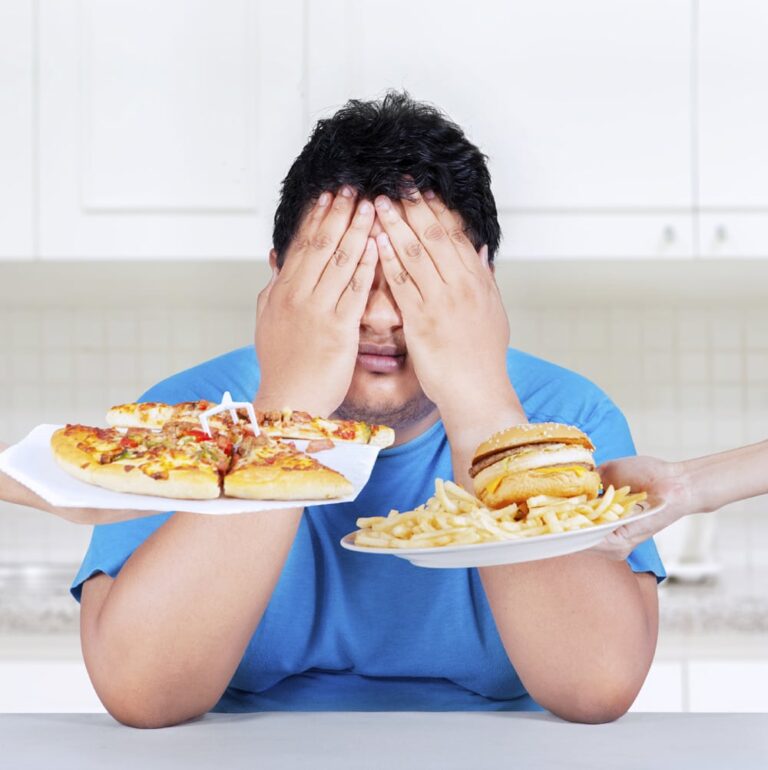 Not a single extra piece or off-target calories.
Not a single extra piece or off-target calories.
Here we also see a complete lack of contact with our urgent needs
A few decades ago, such a deviation was rare, now it is one of the most common types of anomalies. Bigorexic goes to the gym and trains in front of a mirror or a video camera, or better with a live video broadcast to the social network. They don't pump muscles - they pump a beautiful reflection.
In sex
A partner becomes a kind of mirror reflecting a beautiful bigorexic. For both of them, physiology is not important. Their sex is a theater where all the roles are assigned and there is a reaction of the viewer. There are two masks in the bed that think they feel something and that they are alive.
Such people often have autoimmune sexuality: they are excited by their own reflection in the mirror. A feeling partner in sex is superfluous. Sometimes the muscles in the reflection are optional: bigorexics with an “imperfect” body can selflessly admire themselves.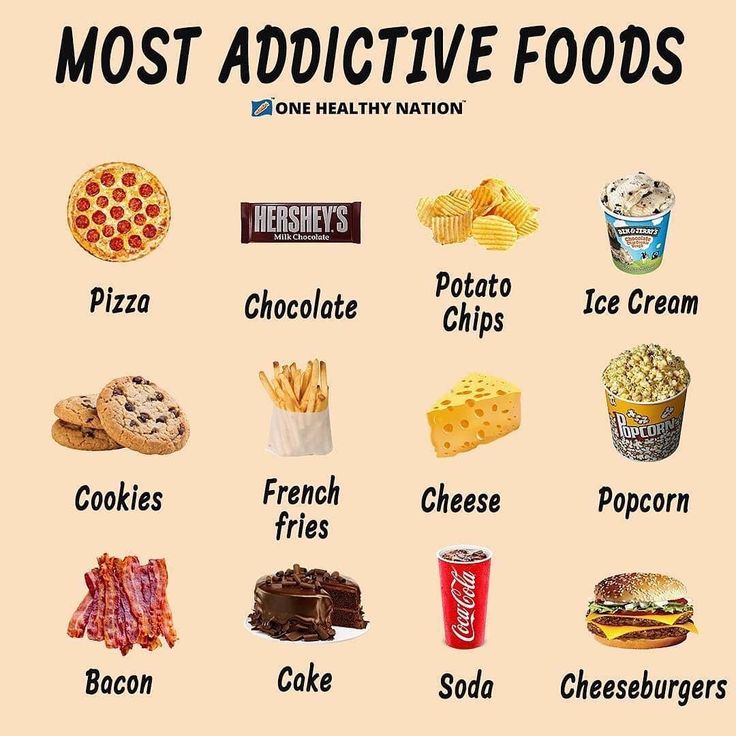
Orthorexia: the road to bed through the shower
Eating
These people in their relationship with the world are driven by the fear of not letting the poison into themselves. It is they who can spend long hours in the store, studying the labels on products.
They have the idea that food will destroy their body. They will read mountains of food safety books and magazines to stay healthy and live long. Often in an orthorexic family, someone poisoned themselves: with alcohol, drugs, a toxic lifestyle.
In sex
Interestingly, in a relationship with a partner, all "dancing with tambourines" will occur at the stage of choice. And he will be meticulous.
These people like everything in bed to happen according to certain conditions: special eco-friendly underwear, a shower before sex (both for themselves and for a partner), scrupulously selected fragrances and lighting. But if the "customs" is passed - orthorexics give themselves up to passion in full.
Emotional overeating: drowning out anxiety with cake
In food
The emotional eater is the most common type of modernity. To one degree or another, this overeating occurs in most people.
They eat food to cope with difficult feelings - they eat something (anxiety, fear, pain, loneliness, despair)
Their motto is: "I have no love and joy in my life - I eat sweets." Food is the reward for the experience. And they do experience euphoria and sedation for a while after taking a “delicious dose.”
In sex
Sex for them is a red herring, compensating for a lack in other areas. It's not just pleasure that's important here. People who are used to "emotionally" eating approach the topic of sex as an attempt to have fun, switch attention, and get a vivid impression. This is relaxation, stress relief and compensation for suffering. Therefore, there is no psychological intimacy in their partnership.
“The partner of the emotional eater has a crazy burden: they have the function of a loving mother. Which means: love me unconditionally, as I need it, - explains Ev Khazina. - But it is basically impossible. "Emotions" are focused mainly on themselves. A partner for them is a tool of satisfaction. It’s not worth waiting for him to care about your interests. ”
Dating as a way to recognize a sexual strategy
Are there proper relationships with food and sex, or are there anomalies all around? Yes, there are harmonious unions and healthy nutrition strategies, Ev Khazina is convinced: “I am hungry - I eat. Not hungry - don't eat. Everything else is mind games. It's the same in sex. I need - I go and make love with a partner who shares with me emotionally, sensually and psychologically this natural need.
Why do people love to eat on a date before they go to bed? They intuitively feel that it is worth first looking and "counting" the hidden codes.
Sexuality is most easily seen in movement, dance and eating
A person can be seen whether he is tight or loose, whether he is fastidious in ordering dishes or simple and predictable, stingy or generous, how much he appreciates himself and his choice of a sexual partner. Will he carefully look for a restaurant and cuisine, or will he take you to the first eatery that comes across, smelling of burnt fat.
Will he carefully look for a restaurant and cuisine, or will he take you to the first eatery that comes across, smelling of burnt fat.
You can see his passion in the way he eats. Tastes food - most likely, he will also savor sex. Or, eating a three-course meal, he seems to be passing a cross for speed - which means that he is not in contact with his body either at the table or in bed: you will get a technological and lightning-fast sexual intercourse, where "salad" and "compote" will be eaten at the same time and are unlikely to be chewed.
If a person looks at the menu and immediately names what he would like to order, he knows exactly what he wants in all areas: he has a direct channel to his body. “The menu in a restaurant is a metaphor for life,” says Ev Khazina. “Therefore, watch the eater in front: perhaps this is not your“ dish ”.
Psychologist, art therapist, specialist in nutrition psychology, leader of trainings and programs at the training center Marika Khazina, co-author of the book “Open the Window. How to let new opportunities into your life.
How to let new opportunities into your life.
www.marik.ru/
Text: Olga Kochetkova-Korelova Photo source: Shutterstock
New on the site
6 main defense mechanisms of the psyche
jealous?
“I am in demand as an intelligent conversationalist, but not as a friend. Why is this happening?"
You are a victim of the "dark forest syndrome": 6 symptoms
Selfharm: why people hurt themselves physically and how to help them
"I am an infantile person": 3 steps to grow up
"I'm afraid to go crazy because of the attitude of my parents, but they won't let me see a psychologist"
Psychological dependence between eating habits and sexual addictions. - Your Psychologist Online
Author Olga Nedelkova Reading 5 min. Updated
Psychologists have long discovered the relationship between food and sexual preferences. Thus, the expression "I am what I eat" (supplemented with the words "... and how I eat") appears in a new light. By the way, awareness of the influence of eating habits on a person’s sexual addictions will save you from unnecessary steps and disappointments - by “reading” a new acquaintance, you can understand who he is and what he needs, which means that you can make a conclusion about your compatibility with him and decide “will” you with him or not.
Thus, the expression "I am what I eat" (supplemented with the words "... and how I eat") appears in a new light. By the way, awareness of the influence of eating habits on a person’s sexual addictions will save you from unnecessary steps and disappointments - by “reading” a new acquaintance, you can understand who he is and what he needs, which means that you can make a conclusion about your compatibility with him and decide “will” you with him or not.
A bit of history.
The topic of the psychological relationship between food and sex first became interested in France, which is not surprising, because it is in this country that culinary and erotica are taken more seriously than anywhere else. Interest has led to a number of studies and publications. So, scientists have found that 80% of men with premature ejaculation often swallow food, almost without chewing it - they eat "on the go." Most French women (about 85%) choose men who love to cook. This moment has a downside: the cool attitude of thin women (and there are many among French women) to the cooking process is a kind of denial of their own sexuality, which means that they most likely do not relax in bed.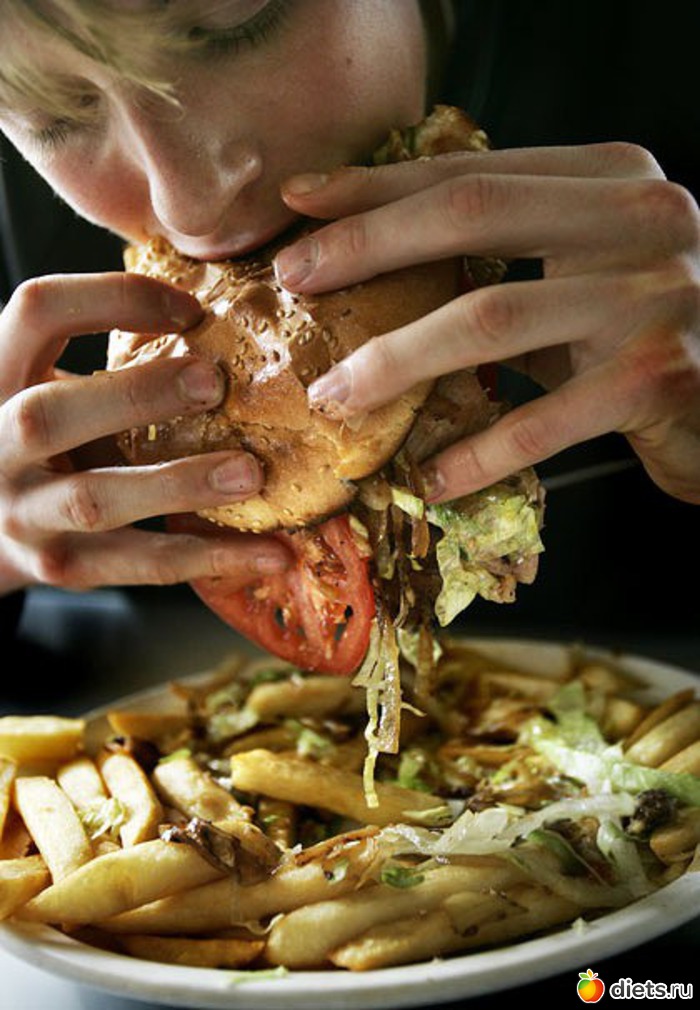
So, scientists have found that 80% of men with premature ejaculation often swallow food, almost without chewing it - they eat "on the go."
According to research by British sociologists, people who know how to enjoy food have a higher libido. Now it is clear why, for many, food and sex are pleasures that are almost equivalent in terms of the strength of the sensations experienced. By the way, yes, it has been noticed that it is more difficult for people with a strong sexual constitution to restrict themselves in food. They want lots and lots of food. And often want late at night. Reasonable arguments are powerless here, or rather, they act, but for the time being, a return to "tasty" habits is inevitable.
People with a weak or average sexual constitution easily restrain themselves in food urges and refuse an extra (and not superfluous too) piece. It is easy for them to force themselves to eat only healthy food, even if it is tasteless. Sports, diets - it's all about them. They are taut, often thin, mobile. Their willpower and ability to stop in time is often the envy of their food-loving friends, who are not affected by advice like "yes, just pull yourself together." Yes, there it’s not necessary to take oneself into “hands”, but to establish personal life so that the relationship is a joy.
Sports, diets - it's all about them. They are taut, often thin, mobile. Their willpower and ability to stop in time is often the envy of their food-loving friends, who are not affected by advice like "yes, just pull yourself together." Yes, there it’s not necessary to take oneself into “hands”, but to establish personal life so that the relationship is a joy.
Let's talk a little more about these differences and move on. So, people with a strong food and sexual appetite are often monogamous, who do not welcome diversity in sex: an offer to change their position or do “it” in an alternative way can cause them to suspect that their partner is cheating (“how does he know all this?”) Or feeling disgust (“here is a pervert!”). They need a lot of sex, but with one partner with whom they can live at least a lifetime if everything suits them in the relationship.
People with a strong food and sexual appetite are often monogamous. They don't need a lot of sex - they need more and more partners.
Group sex, oral - these types of satisfaction of sexual desire are preferable for them. Such men and women, having high sexual acceptability, often cheat on their dearest half, causing her to desire revenge. On the other hand, the need for novelty can be satisfied with interesting work that involves frequent changes of scenery. And if a permanent partner also supports their desire to “do it in a new way” (in the bath, on the bed, under the bed, on the windowsill, in the sea, etc.), then there will be no need to go to the side. All is well: a balanced brain biochemistry gives a feeling of happiness, and the partner (sha) does not worry about possible infidelity.
Getting to know Casanova in food.
So let's continue. A man who carefully monitors his weight and is concerned about the calorie content of food is unlikely to be able to fully satisfy a woman. He's too firm on his feet. Gourmets who prefer haute cuisine are often great lovers. In contrast to selfish gluttons, who compensate for sexual dissatisfaction with excessive food intake (this was discussed above).
Best of all in love games, a man who monitors his diet, but without fanaticism, refuses an extra piece of bread or dessert, will show himself. For such an MCH, it is important first of all to satisfy the woman, and only then to achieve her own orgasm. Fat or just moderately well-fed men in terms of sex are preferable to thin ones, as they like to enjoy life, while thin men tend to limit themselves and subject their own emotions and feelings to strict control.
People who are indifferent to food can hardly bear touching and kissing.
Vegetarians who have given up appetizing foods and spices are not very good at lovemaking. Perhaps the reason for this is a hidden aversion to sensuality, manifested in the rejection of appetite-stimulating foods.
If an adult man prefers to eat fast food, this indicates his meager fantasy and sexual immaturity. That is, he will be a boring lover.
Aesthetes who appreciate beauty and care about the surroundings (starch tablecloths, porcelain, silver cutlery, etc.



